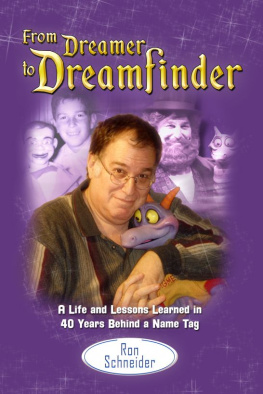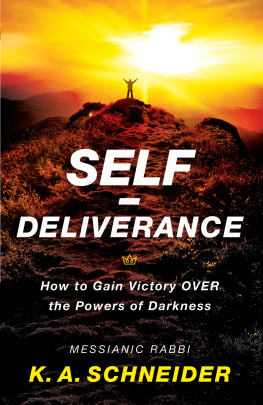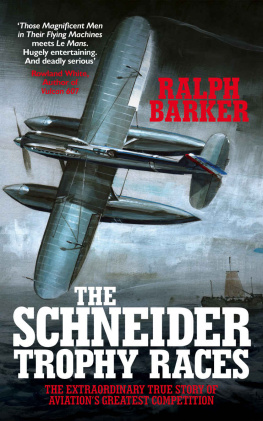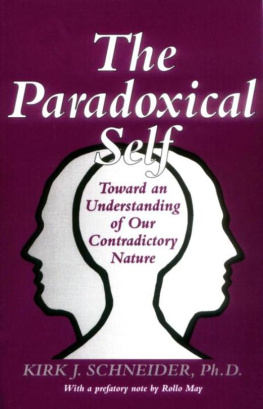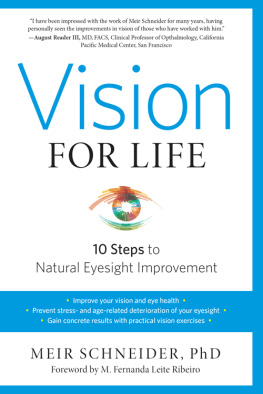Michel Schneider - Marilyns Last Sessions
Here you can read online Michel Schneider - Marilyns Last Sessions full text of the book (entire story) in english for free. Download pdf and epub, get meaning, cover and reviews about this ebook. year: 2011, publisher: Canongate Books, genre: Non-fiction. Description of the work, (preface) as well as reviews are available. Best literature library LitArk.com created for fans of good reading and offers a wide selection of genres:
Romance novel
Science fiction
Adventure
Detective
Science
History
Home and family
Prose
Art
Politics
Computer
Non-fiction
Religion
Business
Children
Humor
Choose a favorite category and find really read worthwhile books. Enjoy immersion in the world of imagination, feel the emotions of the characters or learn something new for yourself, make an fascinating discovery.
- Book:Marilyns Last Sessions
- Author:
- Publisher:Canongate Books
- Genre:
- Year:2011
- Rating:5 / 5
- Favourites:Add to favourites
- Your mark:
- 100
- 1
- 2
- 3
- 4
- 5
Marilyns Last Sessions: summary, description and annotation
We offer to read an annotation, description, summary or preface (depends on what the author of the book "Marilyns Last Sessions" wrote himself). If you haven't found the necessary information about the book — write in the comments, we will try to find it.
Marilyns Last Sessions — read online for free the complete book (whole text) full work
Below is the text of the book, divided by pages. System saving the place of the last page read, allows you to conveniently read the book "Marilyns Last Sessions" online for free, without having to search again every time where you left off. Put a bookmark, and you can go to the page where you finished reading at any time.
Font size:
Interval:
Bookmark:

First published in Great Britain in 2011 by
Canongate Books Ltd, 14 High Street,
Edinburgh EH1 1TE
This digital edition first published by Canongate in 2011
Copyright Michel Schneider, 2006
English translation copyright Will Hobson, 2011
The moral right of the author has been asserted
First published as Marilyn dernires sances in France in 2006
by Editions Grasset, 61 rue des Saints-Pres, 75006 Paris
www.canongate.tv
The publisher acknowledges subsidy from the Scottish Arts Council towards the publication of this volume.

This book is supported by the French Ministry of Foreign Affairs, as part of the Burgess programme run by the Cultural Department of the French Embassy in London (www.frenchbooknews.com).

For text permissions, please see
British Library Cataloguing-in-Publication Data
A catalogue record for this book is available on
request from the British Library
ISBN 978 1 84767 051 9
eISBN 978 1 84767 914 7
Join the discussion :

#marilynslast
To Marilyn
Theres always two sides to a story.
Marilyn Monroe
New York, April 1955. The writer Truman Capote is at a funeral with Marilyn Monroe.
MARILYN: Seriously, though. Its my hair. I need colour. And I didnt have time to get any. It was all so unexpected, Miss Collier dying and all. See?
She lifts her kerchief slightly to display a fringe of darkness where her hair is parted.
TC: Poor innocent me. And all this time I thought you were a bona-fide blonde.
MARILYN: I am. But nobodys that natural. And, incidentally, fuck you.
Like Marilyns hair, this novel is a phoney of the bona-fide kind. It is inspired by actual events and, except where changes have been made to respect the privacy of the living, its characters appear under their real names. Locations are accurate, dates verified, and quotations from accounts, notes, letters, articles, conversations, books and films are the protagonists own.
But it is a work of fiction. The forger in me hasnt hesitated to impute to one person what another has said, seen or experienced, to ascribe to them a diary that hasnt been found, articles or notes that have been invented, and dreams and thoughts for which there is no source.
In telling this story, a loveless love story of two characters who became fatally embroiled in each others lives, my aim is not to find the truth, or probable truth, about Marilyn Monroe and her last analyst Ralph Greenson, but to observe a couple in the act of being themselves, and register their uncanniness as if it spoke to me of my own.
August 2005
REWIND
Rewind the tape. Rerun the story. Replay Marilyns last session. The end: thats always where a story starts. I love movies that open with a voiceover. Theres almost nothing on screen a pool with a body floating in it, the tops of some palm trees stirring in the wind, a naked woman under a blue sheet, splinters of glass in a half-light and someones talking to himself so as not to feel utterly alone. A man on the run, a private detective, a doctor a psychoanalyst, why not? looking back, telling the story of his life. He says whats killing him so youll know what he lived for. Listen to me because Im you, his voice seems to say. Its always the voice that makes the story, not what it says.
Im going to try to tell this story. Our story. My story. It would be an ugly little tale even if you could get rid of the ending. A woman, already half dead, drags along a sad little girl by the hand. She takes her to see the head doctor, the words doctor. He gives her his time, tells her her time is up, then listens to her with a sort of abject love for two and half years. He doesnt understand a word she says and ends up losing her. Such a sad, grim story. Nothing could lighten its weight of melancholy, not even the smile that seemed to be Marilyns way of apologising for being so beautiful.
The title of this unfinished piece of writing was underlined three times. Handwritten and undated, it was found on his death among the papers of Dr Ralph Greenson, Marilyn Monroes last psychoanalyst. His was the voice that Sergeant Jack Clemmons, watch commander at West Los Angeles Police Department, had heard on the night of 45 August 1962 when a call had come in from Brentwood at four twenty-five a.m.
Marilyn Monroe has died of an overdose, a mans voice had said dully. And when the stunned policeman had asked, What? the same voice had struggled to repeat, virtually spelling it out syllable by syllable, Marilyn Monroe has died. She has committed suicide.
REWIND
The city seems to John Miner to sweat even more in August than it used to in spring. Pollution casts a pink veil wherever he looks and, even in the glare of the midday sun, the streets have a fuzziness to them, like the sepia haze of an old movie. Los Angeles strikes him as even more unreal than it had done forty years earlier. More metallic. More naked. More null and void. His eyes still smarting from downtowns murky, oppressive reek, he enters the journalist Forger W. Backwrights office in the Los Angeles Times building at 202 West 1st Street. Tall and stooped, he looks around constantly, as though he were lost. An old man of eighty-six come to tell an old story.
As head of the medical-legal section at the District Attorneys Office, Miner had attended the autopsy on Marilyn Monroes body conducted by Dr Thomas Noguchi, the coroner who, six years afterwards, would perform the same procedure for Robert Kennedy, one of the people suspected, by those who believed such things, of organising Monroes murder. Miner had observed smears being taken from the actresss mouth, genitals and anus. The autopsys principal discovery was the mysterious presence in her blood of 4.5 milligrams of a barbiturate, Nembutal, for which no sign of injection or oral ingestion could be found. It returned a verdict of probable suicide, an expression Miner has turned over in his mind ever since. They used that wording in the final report; initial accounts spoke merely of suicide or possible suicide. Of course, youd say it was probable if you looked at the case from a purely psychological point of view, Miner has always thought, but that doesnt mean the star hadnt spent thirty-six years committing this probable suicide, or that a criminal hadnt been employed to do the actual deed. He thinks of other expressions to describe what had happened: foul play or, as Dr Litman of the Suicide Prevention Team had put it, a gamble with death.
REWIND
Given the choice, the long-since-retired Miner would simply play the journalist one of the tapes Marilyn had recorded for her analyst at the end of July or the start of August 1962. Ralph Greenson had labelled them MARILYN: LAST SESSIONS, and Miner had listened to them and transcribed them forty-three years previously, but never seen or heard of them since. They had vanished during the analysts lifetime or after his death, who could tell? The only trace left of them is the summaries Miner has made in his meticulous lawyers handwriting, and so, after greeting the journalist, he shakily holds out a sheaf of crumpled pages from a yellow legal pad. Backwright tells him to sit down, and gives him a glass of iced water.
Next pageFont size:
Interval:
Bookmark:
Similar books «Marilyns Last Sessions»
Look at similar books to Marilyns Last Sessions. We have selected literature similar in name and meaning in the hope of providing readers with more options to find new, interesting, not yet read works.
Discussion, reviews of the book Marilyns Last Sessions and just readers' own opinions. Leave your comments, write what you think about the work, its meaning or the main characters. Specify what exactly you liked and what you didn't like, and why you think so.



